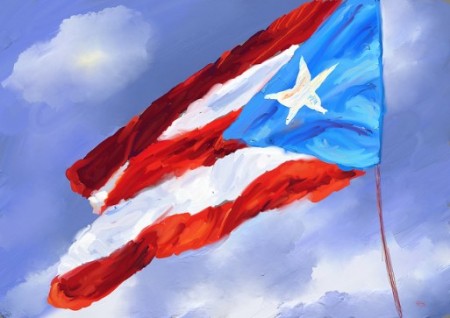 Patrick McDonald
Patrick McDonald
Debt and Decisions: Puerto Rico
By Luke Lorenz and Dante Disparte
While the small American territory of Puerto Rico struggles to overcome the most significant economic crisis that it has faced in its history, the importance of this affair is receiving little attention from the U.S. mainland. The tragedy of this apathetic attitude is that Puerto Rico’s recovery is dependent upon the actions of the U.S. Congress.
The unique relationship between the United States and Puerto Rico has typically been beneficial to the island and its people. U.S passports allow Puerto Rican citizens to travel freely throughout the states. One currency, comparable tax and legal systems and proximity to the United States attracted business, tourism and investment.
But this relationship also has disadvantages which are now being felt in substantial ways. Because Puerto Rico is not a state, it cannot pursue an orderly debt restructuring as other American states have done. An attempt at restructuring, called the Puerto Rico Public Corporations Debt Enforcement and Recovery Act, was recently struck down by United States District Court Judge Francisco A. Besosa. Without the ability to maneuver, Puerto Rico may be headed on an economic collision course.
Another disadvantage comes in the form of Congressional malaise. Puerto Rico has no voting representation in the very Congress that now must decide its fate. Any possible debt restructuring or financial bailout will require Congressional approval. But while these are matters of life and death for the people of Puerto Rico, Congress has little to gain from taking efforts to assist almost 4 million Americans that cannot vote.
So how does this affect American security on the mainland?
First, if Puerto Rico defaults on its debt (which is a very real possibility) it could trigger a crisis in the municipal bond market. Over the last few years, major U.S. hedge funds have purchased large quantities of distressed Puerto Rican municipal bonds due to favorable tax treatment. Puerto Rico’s inability to finance these debts would have a considerable impact on the market potentially eroding investor confidence in this previously safe asset class.
Second, there is the implied backing of U.S. territories by the United States. What is the value of our relationship with Puerto Rico if we do nothing to avert a crisis that will be detrimental to the island and its population of American citizens? There is an unwritten understanding that as a territory of the United States, Puerto Rico can depend on some level of support in times of need. Federal inaction will nullify this concept and sour this unusual relationship further tarnishing international sentiment and confidence in the U.S. economy.
Last, there are several national security considerations. Caribbean islands like Puerto Rico are high traffic trans-shipment points for drugs and human trafficking. Puerto Rico has among the highest rates of passport theft, leaving America vulnerable to fraudulent entry from individuals that might seek to do us harm. As a gateway into the United States, if the island is left battered by fiscal catastrophe it could prove a substantial concern for U.S. national security.
What can be done to alleviate this situation?
- Remove false deadlines and allow the appropriate time necessary for the debt to be resolved.
- Bring stakeholders together for solutions. The Puerto Rican government, companies, hedge fund investors and the U.S. government all want an optimal solution to this problem. There should not be conflict between these groups, but a mutual determination towards a viable resolution.
- Create a hurdle rate for the debt burden which the island can absorb. Compromise will not produce a result which is ideal for everyone, but pragmatism must win out over delusion.
So what happens now?
Puerto Rico wants the same financial laws that would apply to any other group of U.S. citizens. They want to pay their debt before the need for a bailout, but there must be a long range resolution. Treat this territory with the same respect and spirit of cooperation with which we would treat a state. Remember that there are almost 4 million Americans on that island.
Dante Disparte is the founder and CEO of Risk Cooperative, a strategy, risk and capital management firm focusing on mid-market opportunities, market expansion and innovation on a global scale.
Luke Lorenz is an Adjunct Fellow with the American Security Project and a former Officer in the United States Army.
Image Credit: Patrick McDonald






[…] Debt and Decisions: Puerto Rico […]